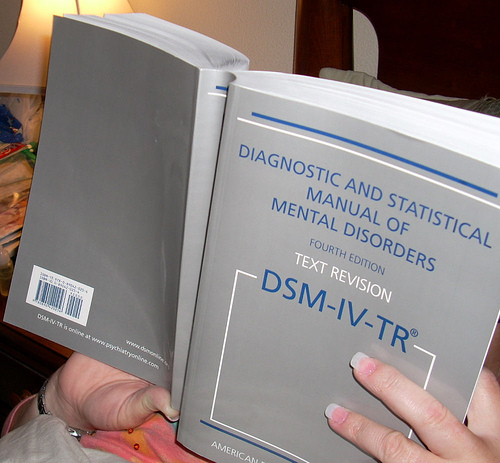Abandoning Ambition: Coming to Terms With Bipolar Disorder as a Disability
Catholicism has a somewhat archaic term that one sometimes hears bandied about: “worldly respect.” The idea is that, while earned reputation might be a good thing, it shouldn’t be our goal in life. While virtue and earthly respect often go together, they just as often come apart. Sometimes, in especially unjust situations, virtue is actually punished. Other times, virtue, especially Christian virtue, may simply not be recognized because it isn’t flashy enough. There are simply more virtuous people than society has time to admire and more saints than the Church has the resources to count. If we focus on the convenient or the flashy, virtue, especially Christian virtue, is likely to suffer.
Disability adds a third reason for not being concerned with worldly respect. I don’t believe, as many do, that people who achieve what are sometimes considered “great things” shouldn’t be praised for them. It is quite an accomplishment to found a major corporation, become a well-respected scholar or to lead a country. Not only do those achievements usually benefit society, but they show certain virtues as well. It takes certain strengths both of imagination and character to be able to accomplish any of this sort of achievements, and I am genuinely impressed by the impressive C.V.It is for this reason that having a disability like bipolar disorder can be so difficult for someone like me. For more than the last decade, I have been at the university, studying and teaching. The entire culture there is one of prestige, in which accomplishment is rewarded with praise and lack of accomplishment is rewarded with, well, indifference, and of an occasionally insulting kind. It is hard and perhaps impossible not to internalize that kind of concern for worldly respect. Moreover, I don’t just think that this is some vanity game. I really think that the accomplishments in question are worth praising.
However, as someone with bipolar disorder, I need to be realistic about what I can and cannot accomplish. Like many people with bipolar disorder, my mental illness affects my functionality. I would say that I’m at about seventy-percent function, meaning that, on average, I can do about seventy percent of what I would have done had I not been bipolar. Hypomanic, manic and depressive episodes make it hard to work effectively, while anxiety makes it hard for me to interact with others and irritability threatens to pull down all my accomplishments at once. This isn’t to say that I am unable to work. My seventy percent is probably better than many healthy people’s one-hundred percent. However, I am constantly aware that I am not doing as much as I otherwise might have.

Source: Jphilips23 - CC BY-SA 3.0
Literally at every step, I am objecting to my own argument with the kinds of responses that I have heard all of my life about ambition. These are just excuses; this is just negative thinking; thinking outside the box can overcome any obstacle, and so forth. All of these are what one might call “exhortations”. They are useful to get people to see negative thinking patterns and overcome them. However, these only serve as useful exhortations for people without a disability. It only helps to call someone lazy if they actually are being lazy and it only helps to exhort someone to overcome obstacles if they actually can overcome them. Against people who are not being lazy and who are facing insurmountable obstacles, they are actually judgements disguised as exhortations. Telling people to do something they can’t do is just a way of saying there is something irreparably wrong with them.
It is here that my earlier discussion of worldly respect becomes so important. Worldly respect is attached to a level of virtue and a type of virtue that I may not be able to accomplish. However, if there are virtues and achievements that I can have and accomplish, I can aim for those. Since virtue is not the same thing as worldly respect, I can sever the two, seeking what is essentially and always valuable, since worldly respect is only accidentally and only sometimes so.

Source: andrewmalone - CC BY 2.0
As for worldly respect itself, the next few years is going to be a matter of de-internalizing years of measuring success in terms of ribbons. I will instead look to Socrates’ maxim that the only reason that we care about the opinions of others is that we believe that they know what they are talking about. While worldly respect gets it sometimes right, it is only sometimes. When worldly respect gets it wrong, as it almost always does with those who have disabilities, then I will need to train myself to remember why it is I would care about that respect in the first place.










Thanks for this article! I left (or was forced from) a growing career in public policy because of a hospitalization for bipolar disorder. Your words really speak to me because of family/relatives expectations that I keep achieving great things in my career. But bipolar stops me in my tracks all the time. I’m de-internalizing all these values of worldly respect, too.
You’re welcome, Tom. As people with a disability, setting our own realistic goals and being satisfied with their achievement is so important. I’m sorry to hear about your struggles, but glad to hear that you’re in the de-internalization process, too.
Best,
Daniel
Thank you for putting into such concise words the thing I have struggled with for twenty years, the first ten of them without a diagnosis. All this while I have been a single parent to a child with multiple developmental disabilities. Most days, it is all I can do to tend to my son’s needs.
I read your blog regularly, and find your posts informative and encouraging. Thank you for being a voice.
You’re welcome, Gilda, and thank you for the kind words :).
Thanks for the article Daniel. As someone who accomplished a great deal over a 25 year career with a large corporation and was ultimately given the “golden hand shake” due (in no small part I believe) to a couple of incidents related to my bipolar illness, I have finally come to terms with the fact that I must judge myself not on what I was but rather on the person I have become. I now believe that being bipolar has made me both stronger and a better person, even though I never became the CEO of the large corporation I worked for. Their lose for not recognizing that the good things I accomplished far outweighed a couple of incidents they categorized as “bad behavior”.
You’re welcome, Marc. I think there’s an intolerance of a lot of bipolar behavior that is just “odd”, rather than actually dangerous or harmful. Hopefully, that will cut down on the amount of workplace discrimination that we face.
I liked this article too!! Im almost finished a nursing degree and at times it has been a real struggle to get through it. People tell me i have had university easy as i have no children or a family to look after….i have refrained from telling them to try and achieve what i have with bipolar!
I really agree that we must set our own goals, raise the bar or lower it as necessary….i am still learning not to be too hard on myself when i havent achieved what i set out to. It is always in the back of my mind just how good i could be (espiacally at uni) if i didnt have bipolar.
I find university to be especially bad for praising accomplishments and criticizing “failure”, all of which is defined on its own, ablist terms. Thank you for the insight.
I truly appreciate your perspective on “exhortations”. A couple of weeks ago there was an issue going on in my extended family where I felt there was an injustice I felt committed against me. When I tried to speak with and explain it to a family member about it…they just kept saying, “Leave it! Just forget about it! Drop the subject”. I tried to explain to him the problem bipolarity has with “just leaving it”…but he wouldn’t listen nor did he care. My last attempt to conceptualize the difficulty was telling him that saying those things to a bipolar is like telling a guy in a wheelchair to “just get up”. We don’t talk much anymore.
I’m sorry to hear that, Michael. I think a lot of people don’t handle the “drivenness” of bipolar disorder. I’ve found that, since I sometimes can’t control it, I try to get out of situations that are turning ugly, but it doesn’t always work.
i have been bipolar since 1990 and had drastic highs n lows while singly looking after my 2 sons have found ways to improve my life n in 2008 graduated as a counsellor tho i think i wud make a good mental health activist , we are amazing creative sensitive and intelligent people.
We definitely have a lot of sensitivity, and I think we have a lot to contribute to mental health. Sometimes we hear too much about a distinction between “experts” and “consumers”, but I think there can definitely be more overlap.
Dr. Bader and All my Bipolar Brothers and Sisters-
When I saw the title of this article, and the thumbnail pic associated with it in the “Recommendations” Box on the Home page, I thought the article would be adressing the issue of coming to terms with the progression of manic-depression to the degree that the individual would be diagnosed as chronically and irreversably psychotic. This became a real concern for me last month when I enterred a Detox and Rehab for my alcoholism and addiction. During the first 10 days of my withdrawal from alcohol and benzodiazepams I was very physically, mentally and emotionally ill. In the middle of one excruciatingly painful and sleepless night, I considered the possibility that I may have crossed the line into permanent insanity. I was seriously considering having myself admitted to a Maryland State Public Asylum, as I cannot afford the “luxury” of long-term admittance to a private facility, such as Shepherd Pratt, Baltimore,MD.
This brings me to two questions that I hope you can answer for me Dr. Bader. 1) How often, if ever, does Bipolar Affective Disorder progress to the point of a permanent state of psychosis? 2) Can an individual have himself admitted for long-term treatment at a public hospital for the insane?
The fact that I am sitting in my own home and composing this email indicates the decision I made concerning my self-diagnosis and prognosis. Both of my illnesses- addiction and BPAD- are chronic, progressive and potentially fatal. I started drinking and “cycling” emotionally at the age of twelve; I am fifty-seven now. My mood swings are increasing in frequency and severity. I am a “late-stage” alcoholic and drug addict. I am tired of the work, energy and effort I need to exhert to maintain independence and self-sufficiency in modern America. For today, I choose to live clean, sober and sane, and to try my best to be a productive and contributing member of society. I do not want to think about what tommorow may bring; but I welcome any and all feedback from you- my bipolar brothers and sisters.
Hi John,
In my understanding, bipolar disorder doesn’t turn into permanent psychosis. It’s cyclical, so there are periods where we aren’t manic. For entering a psychiatric hospital, you can discuss it with your physician, who could give you some suggestions about the rules in your area.
Best,
Daniel